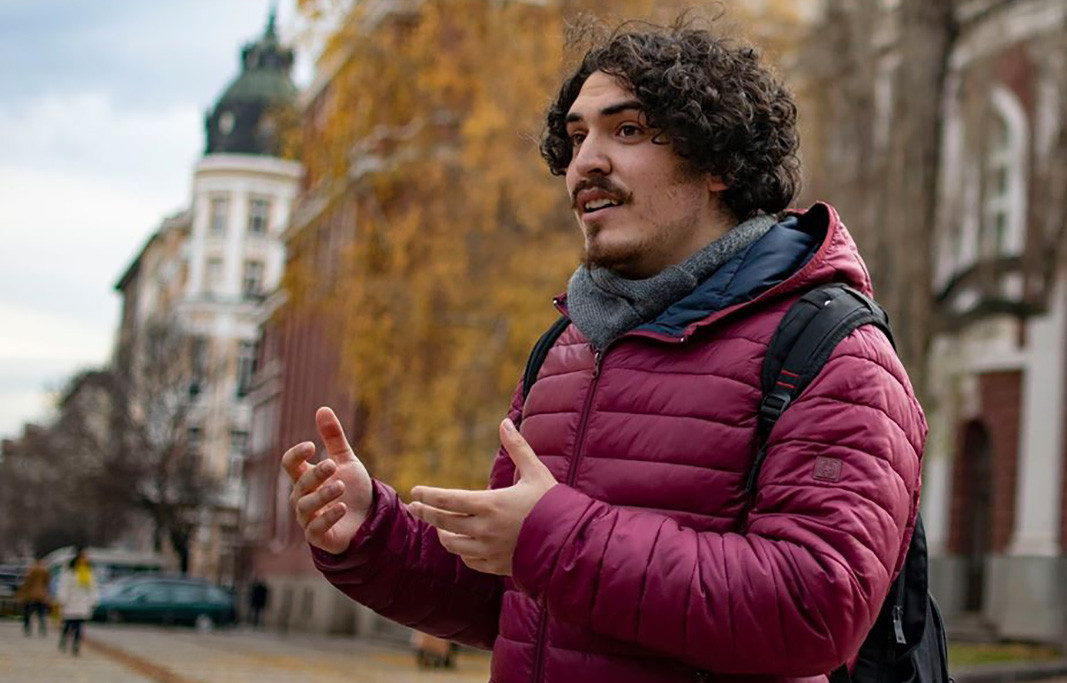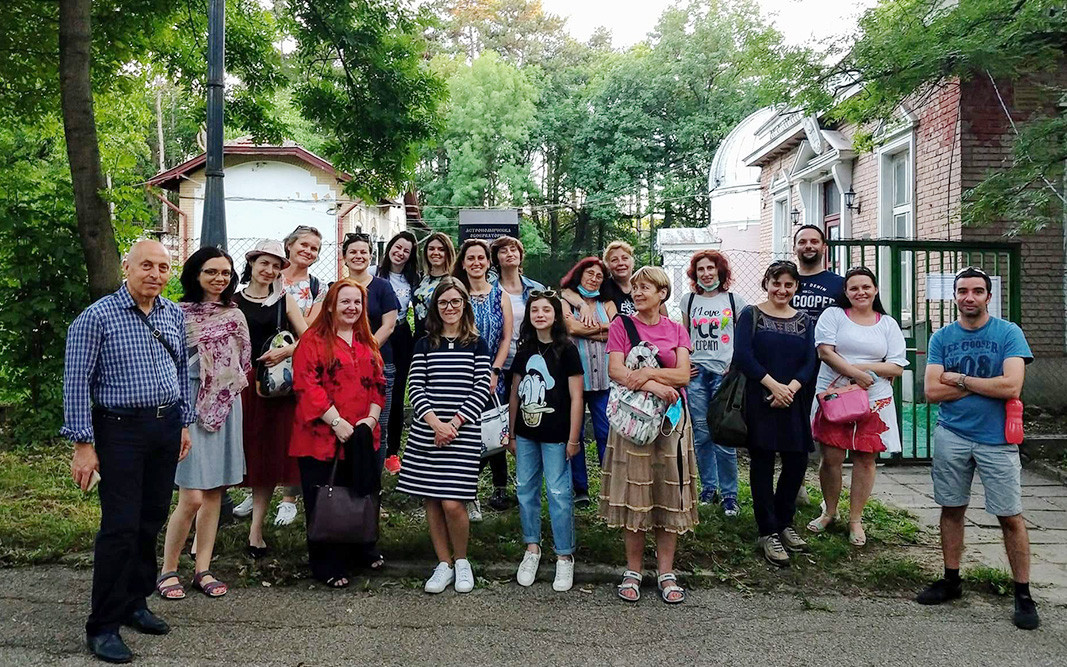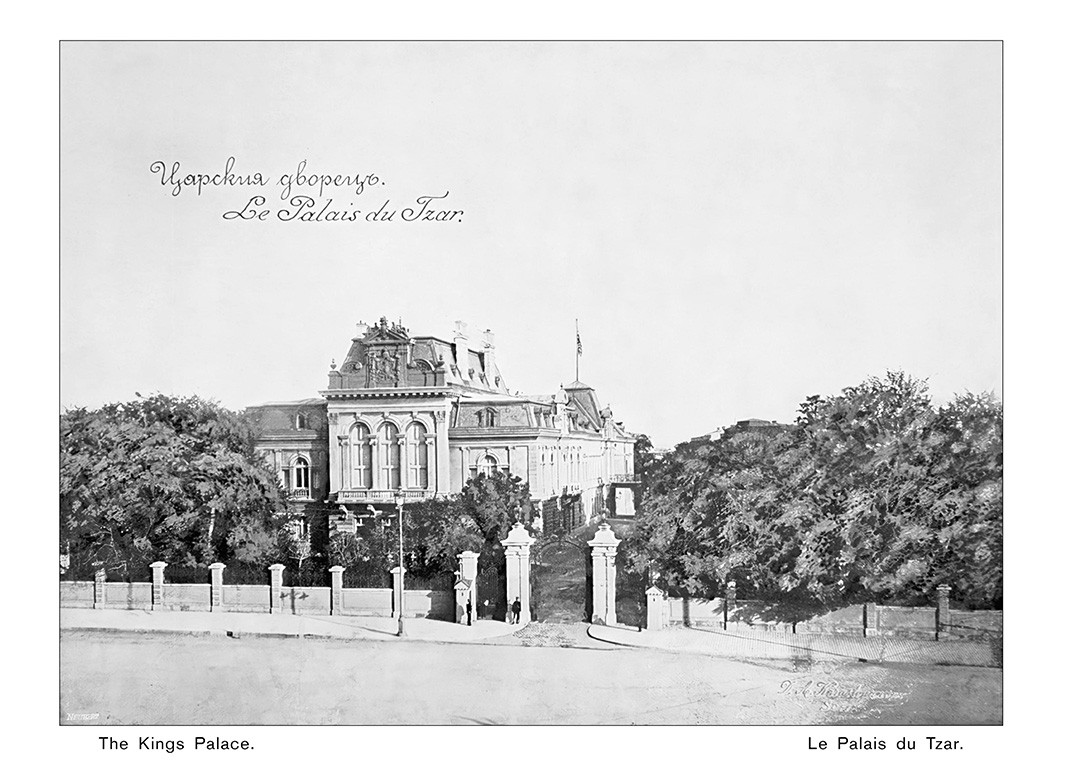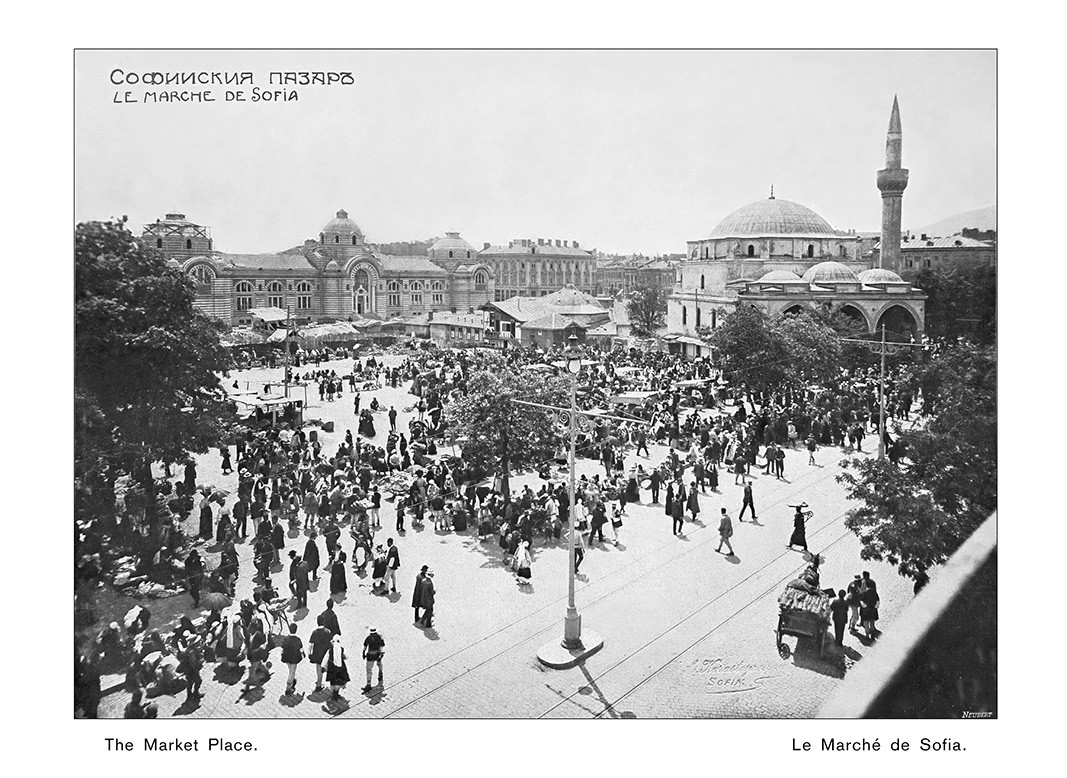A project has been changing the way people perceive Sofia, making them see not just streets and buildings, but history and the spirit of writers, artists, and architects, which continues to be present in the heart of the city.
"Bohemian Sofia is a project dedicated to the history of our capital,” young creator and lawyer Viktor Topalov says.

“Thanks to my work as a guide, my studies of the history of the city, collaboration with collectors and historians, access to some of the most valuable books ever written about the capital, I was able to gather a large database of information. That is why I decided to create this page and start sharing the most interesting things I know.”
The project, created at the end of 2019, started as a blog with interesting facts, photos and stories from the cultural past of Sofia and soon the walking tours around the city started.

"For me, they have always been the best way to revitalize the urban space,” Victor Topalov says. "More and more people are interested in the place they live in, they are curious to learn the stories of the streets they walk on and the buildings they pass by every day."
What was the most Bohemian period in the history of Sofia?
"If we look at the cultural life and prosperity of this part of society, I would say it was the beginning of the XX century, linking this mostly with the new movements in literature and art and the greatest rise in culture,” Victor Topalov says. “This was the time when Bulgarians saw a change to something modern. Back then residents of Sofia already had enough self-confidence to call themselves Europeans; they started living in a more European way; cafes and clubs were created, theater became popular and a little later cinema was introduced.”

On the Bohemian Sofia Facebook page, Victor also presents live thematic virtual tours using old footage as he reveals some of the secrets of old and modern Sofia. One can learn what the original color of the building of the National Theater was; when the lions were placed in front of the main entrance of the Court House; why there was a fence in front of the mirror in the central foyer of the Royal Palace; which offices in the central building of the Sofia University have fireplace; or whether emblematic buildings could have looked very different.

Although the history of the city from the times of the Roman Empire is considered to be much more popular, Victor Topalov wants to show people one more thing:
"Sofia is a very interesting case of a city that in just a few decades had to turn from a small Eastern European settlement into a European capital. And it managed to do it. For several decades after the Bulgarian Liberation (1878) Sofia managed to become an equal rival to Central European and even Western European cities. This is the feeling I want to create in our visitors - the feeling of pride that they are residents of a worthy European city."

English: Alexander Markov
Phoos: private library
On that day the Saviour hosted the traditional Passover meal for the Jewish people at the home of a Jerusalemite. Before the meal, as a sign of respect, He washed the apostles' feet and said, "I did not come to be served, but to serve". At the table,..
The attack in the "St. Nedelya" cathedral on April 16, 1925 is the deadliest terrorist act in the history of Bulgaria. It took place on Maundy Thursday and in terms of its brutality and premeditation, it has no analogue. During Holy..
On the day of Holy Wednesday, one of the last events before the saving sufferings for humanity of the Son of God is remembered. In her sincere repentance, a sinner managed to enter the house where Christ was staying and, wishing to testify to her..
This year, 2025, marks 1160 years since the baptism of our Bulgarian people into the Orthodox faith and 1170 years since the creation of the Bulgarian..
Bulgaria celebrates 149 years since the April Uprising – an event that led to the liberation of Bulgaria after almost five centuries of Ottoman rule...
"You must have strong faith and pray - then the saint will help you and carry your prayer to God," says Father Georgi Markov of the Church of St...

+359 2 9336 661
